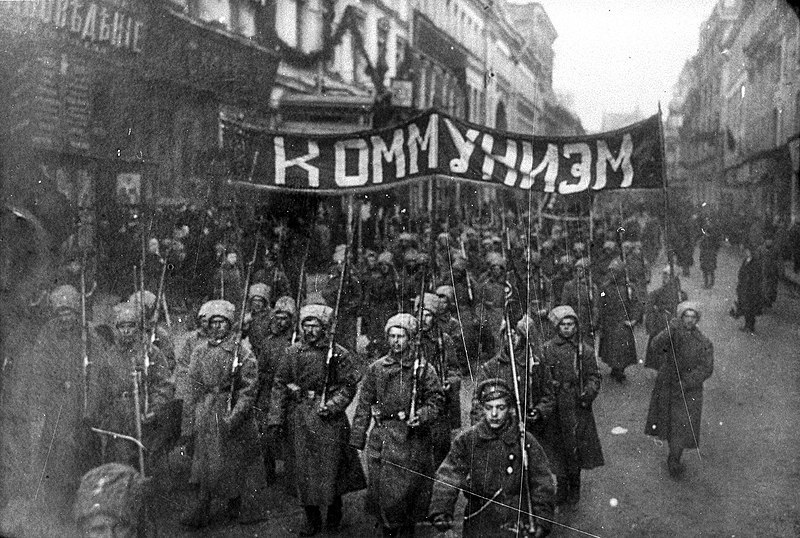Russian Revolution
The Russian Revolution was a pair of revolutions in Russia in 1917 which dismantled the Tsarist autocracy and led to the rise of the Soviet Union. The Russian Empire collapsed with the abdication of Emperor Nicholas II and the old regime was replaced by a provisional government during the first revolution of February 1917 (March in the Gregorian calendar; the older Julian calendar was in use in Russia at the time). Alongside it arose grassroots community assemblies (called 'Soviets') which contended for authority. In the second revolution that October, the Provisional Government was toppled and all power was given to the Soviets.
The February Revolution (March 1917) was a revolution focused around Petrograd (now Saint Petersburg), the capital of Russia at that time. In the chaos, members of the Imperial parliament (the Duma) assumed control of the country, forming the Russian Provisional Government which was heavily dominated by the interests of large capitalists and the noble aristocracy. The army leadership felt they did not have the means to suppress the revolution, resulting in Tsar Nicholas's abdication. The Soviets, which were dominated by soldiers and the urban industrial working class, initially permitted the Provisional Government to rule, but insisted on a prerogative to influence the government and control various militias. The February Revolution took place in the context of heavy military setbacks during the First World War (1914–18), which left much of the Russian Army in a state of mutiny.




























































0 comments
Sign in or create a free account